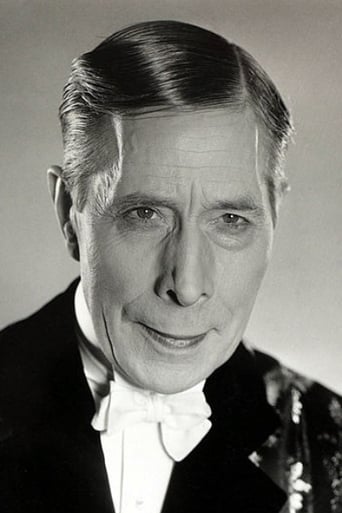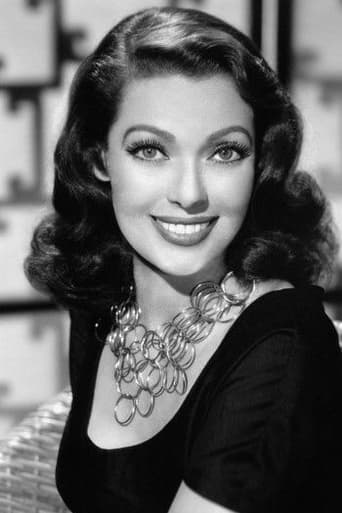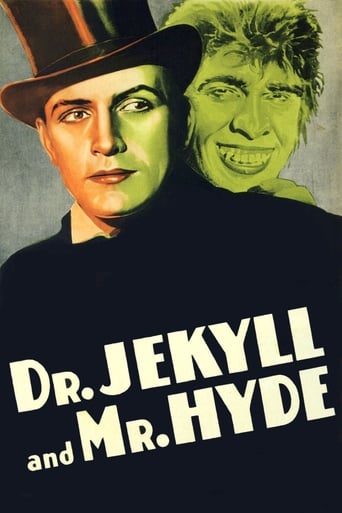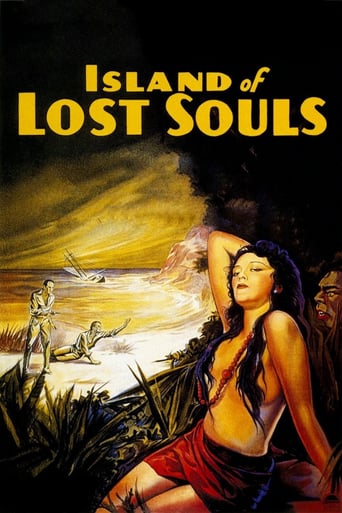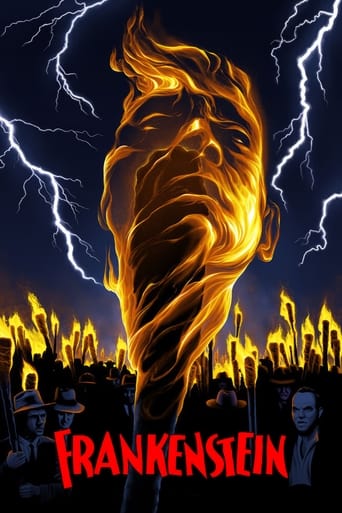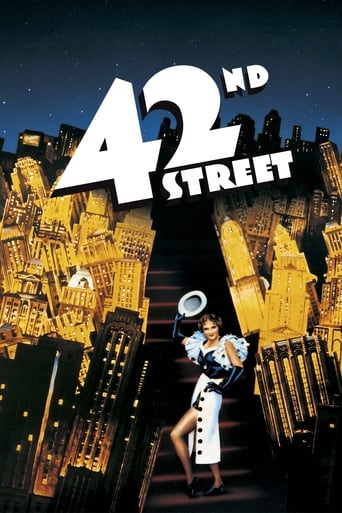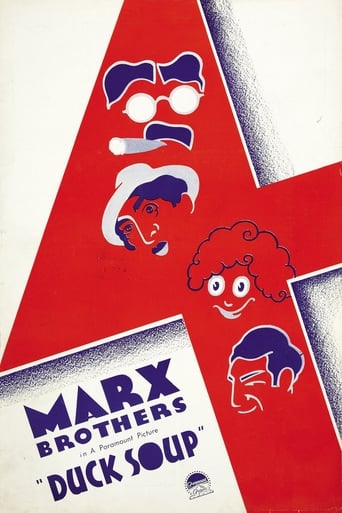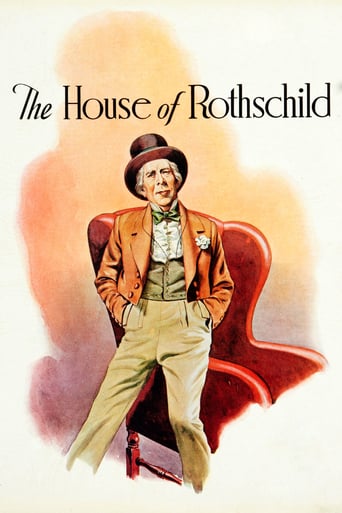
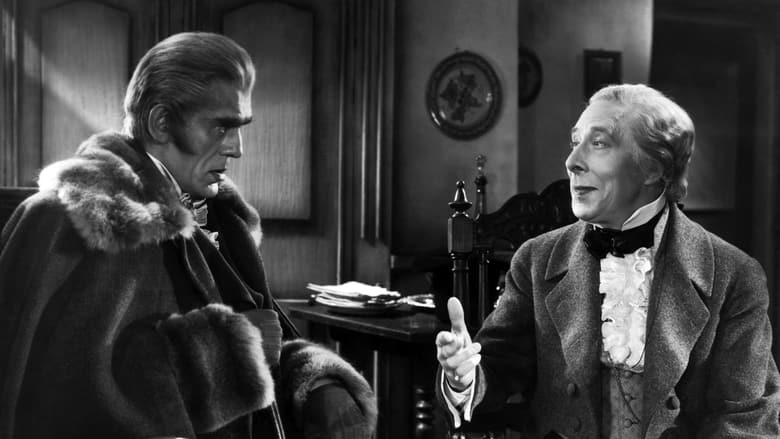
The House of Rothschild (1934)
The story of the rise of the Rothschild financial empire founded by Mayer Rothschild and continued by his five sons. From humble beginnings the business grows and helps to finance the war against Napoleon, but it's not always easy, especially because of the prejudices against Jews.
Watch Trailer
Cast
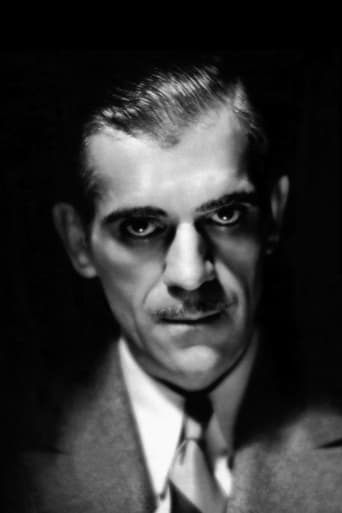


Similar titles
Reviews
Instant Favorite.
I really wanted to like this movie. I feel terribly cynical trashing it, and that's why I'm giving it a middling 5. Actually, I'm giving it a 5 because there were some superb performances.
Story: It's very simple but honestly that is fine.
Through painfully honest and emotional moments, the movie becomes irresistibly relatable
I think it's a very ironic thing that the most overtly positive and obvious portrayal of Jews comes from Twentieth Century Fox--the only major American studio that was NOT controlled by an ethnic Jewish man at the time! So, as folks like Louis B. Mayer and Jack Warner chose to de-emphasize their Jewish roots and make films which almost never even mentioned Judaism, Daryl Zanuck dove head first into the topic and brought us this very unusual biopic.The story is about the Rothschild family and only concerns a snippet in the history of the family--from the 18th century through the fall of Napoleon. When it begins, the family patriarch (George Arliss) instructs his sons to divide up the banking business among five major European capitals. Then, following his death, the story jumps decades later and the new head of the banking family is ALSO played by Arliss--albeit without the wig and makeup he donned at the beginning of the film. The theme is how honorable the family was and how they stood behind freedom and right...and that mistreatment of them and other Jews is just morally repugnant. Interestingly, the biggest anti-Semite of this portion of the film is a German guy (Boris Karloff)...and was perhaps the studio's way to address the rising tide of Naziism at the time.Regardless of its intent, the film is a well acted and interesting costume drama. How close this all actually is to the real life Rothschilds, I have no idea but it was entertaining. Plus, I'd watch Arliss in just about anything!
This would never have made it past the producers, the Breen Office, or the German representatives in Hollywood a year or two later. It opens with what appears to be an outlandish parody of Jewish life in 1780s Prussia. The father (Arliss) is a money lender or pawn broker or something, overacting to beat the band. He and his family run around their humble household when they see the tax collector coming. Arliss wrings his hands and in a quivering voice orders the rest to hide the silverware and the roast, and to break out the second set of books. The sneering tax collector is amenable to a bribe, and when he leaves, the family cackled over how they outwitted him and saved money on the deal. It sets the stereotype in cement -- greedy, money-mongering, clannish cheaters.It develops that there were reasons enough for the family's worry. The Jews of Frankfort all live in "Jew Street" and are taxed at a far higher rate than the mayor himself. The government is corrupt and openly anti-Semitic. But all that has little impact on the unwittingly comic scene of the poor Rothschild's noisily dashing about and trying to hoodwink the tax collector. The old man dies at the end, advising his sons to go out into the world and establish a vast banking empire because "money is the only power we have." The four or five sons follow his orders and we skip to the Napoleonic period an focus on Nathan Rothschild (Arliss, again). The family is fabulously rich and it becomes even more so by betting against Napoleon in both wars. Despite the anti-Semitic feelings among the Allied leaders, Nathan bets everything he has and manages to save all of Europe from extinction.They've done what they could with the story but banking is essentially a boring business, I guess. I certainly have no interest in it and there were some arguments about points being up or down that left me in the dust. There is a sub-theme done with quiet subtlety. Nathan's daughter, Loretta Young, wants to marry a Captain of the Guards, Robert Young, a Gentile. And Nathan is faced with the same problem as Tevyev in "Fiddler on the Roof," the best line of which came from a young Russian who asks one of Tevyev's daughters, "Do you feel about me the way that they feel about you?" When Benny develops a warm feeling for a shiksa in "The Benny Goodman Story", Goodman's mother phrases the issue in terms of social class: "Bagels and caviar don't mix." The underlying questions have to do with the group loyalty of minority groups who have been victimized and the social borders they themselves create, but that's another story.There has always been intolerance, here and in Europe. Minorities are often discriminated against. But my understanding is that the Jews of Germany and elsewhere, like the Rothschilds were doing a pretty good job of being assimilated -- poets, doctors, bankers, scientists -- until the changing times brought disaster. By contrast, the Jews of Eastern Europe held niche occupations in smaller cities and towns. My immigrant German grandfather lived in one of those villages and I once asked him about the Jews when he was growing up. Of course there were Jews. They were money lenders. Why were the Jews the money lenders? "They ver dzha only pipple in dzha village you could trust." He was entirely serious.Didn't the Rothschilds make fine wine too? I'd like to learn more about that. Wine is more interesting than banking.
Excellent historical drama about one of the largest banking institutions in the world. A film about banking and the British stock market wouldn't normally be my cup of tea but this has other elements to it. Defeating Napoleon was central to the story. Money helps win war! And money got the Rothschild family out of the ghetto in 1790's Frankfurt in Prussia. I had no idea that ghettos and such intense hatred for the Jews went back that far. "Jew Street" was hell. Very sad. Anti-Semitism is another huge part of the movie. Hollywood thought this was good enough for an Oscar nomination for Best Picture and probably deservedly so!7.5 / 10 stars--Zoooma, a Kat Pirate Screener
The House of Rothschild had a great cast, which was what made me watch it in the first place. And I'm glad I did. Maybe there are lapses in the pacing, and some of the romantic parts felt a little trite. There is much to recommend about The House of Rothschild though. The lavish costumes and sets and the skilled photography makes it a beautiful film to watch. Alfred Newman's score always compliments and even adds to the drama rather than detracting from it, while the script is very intelligently written(Nathan talk on financing and war was really quite powerful) and the story, of which the subject was fascinating to begin with, is thoroughly absorbing with a beautiful ending. The acting is very good. George Arliss is wonderful in his dual role, Loretta Young is the epitome of youthful loveliness and Boris Karloff is commanding in both menacing and subdued mode. C. Aubrey Smith and Reginald Owen are similarly excellent.Overall, beautiful to watch, well-written and acted and fascinating. 8/10 Bethany Cox


